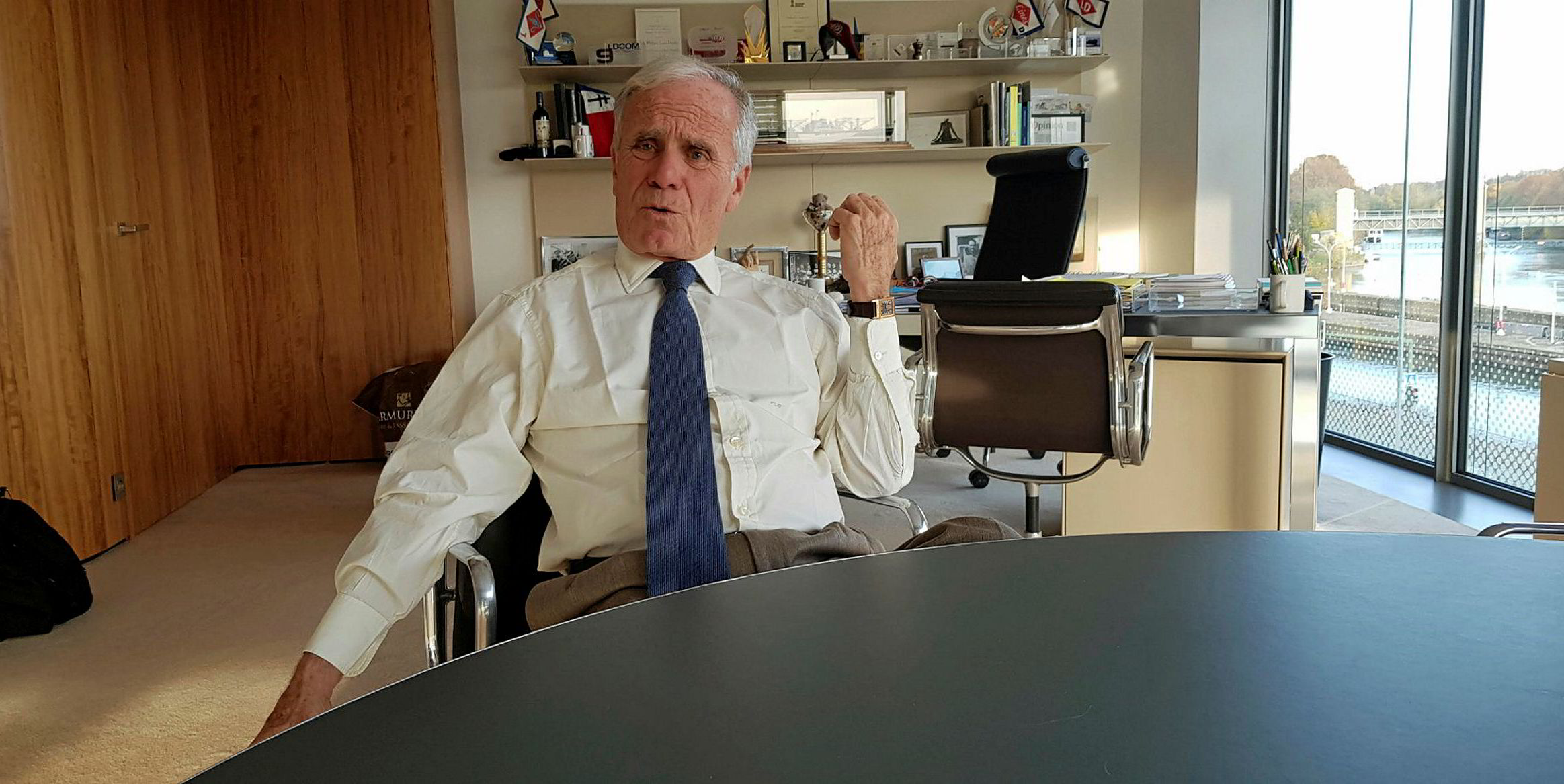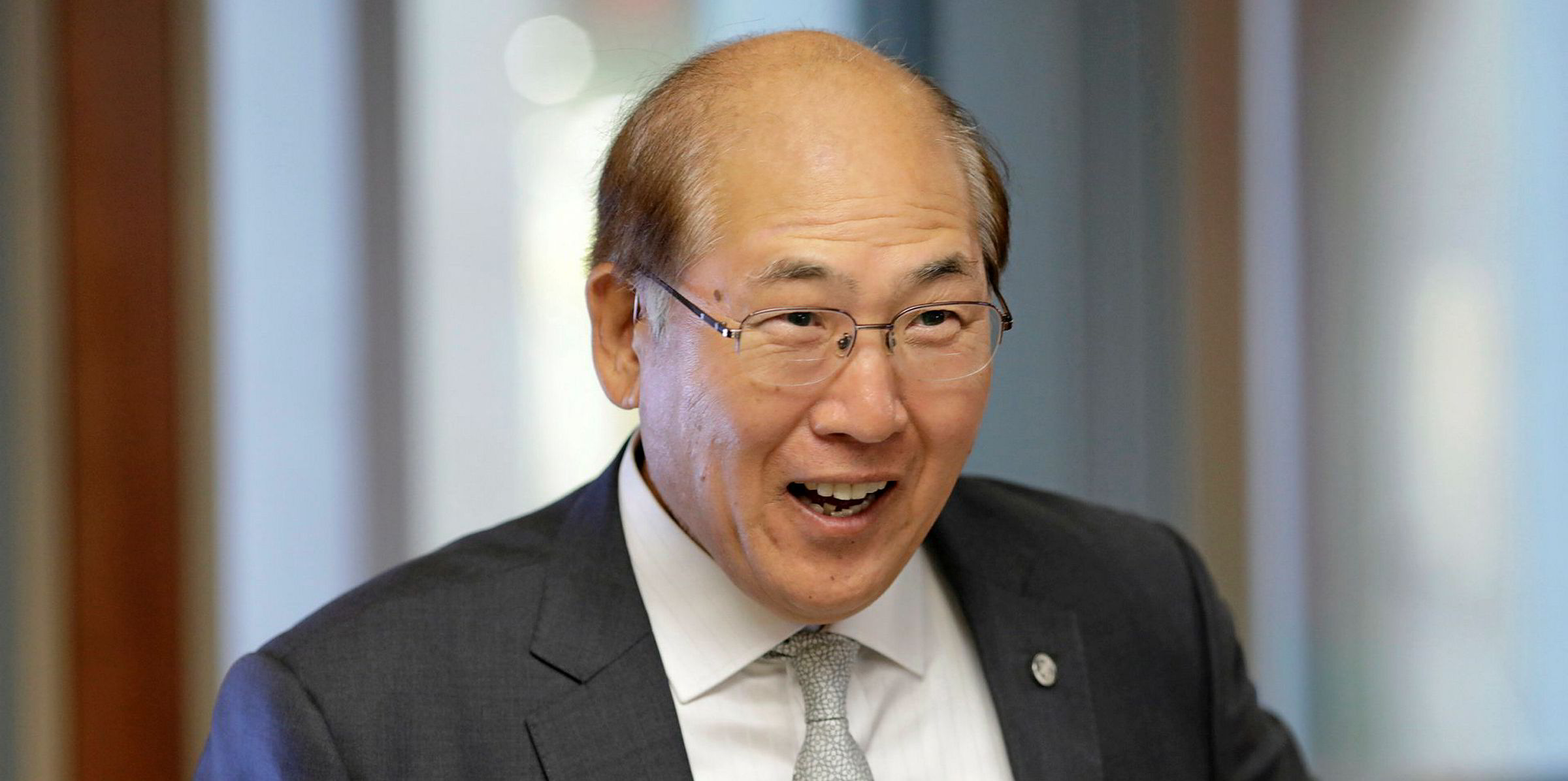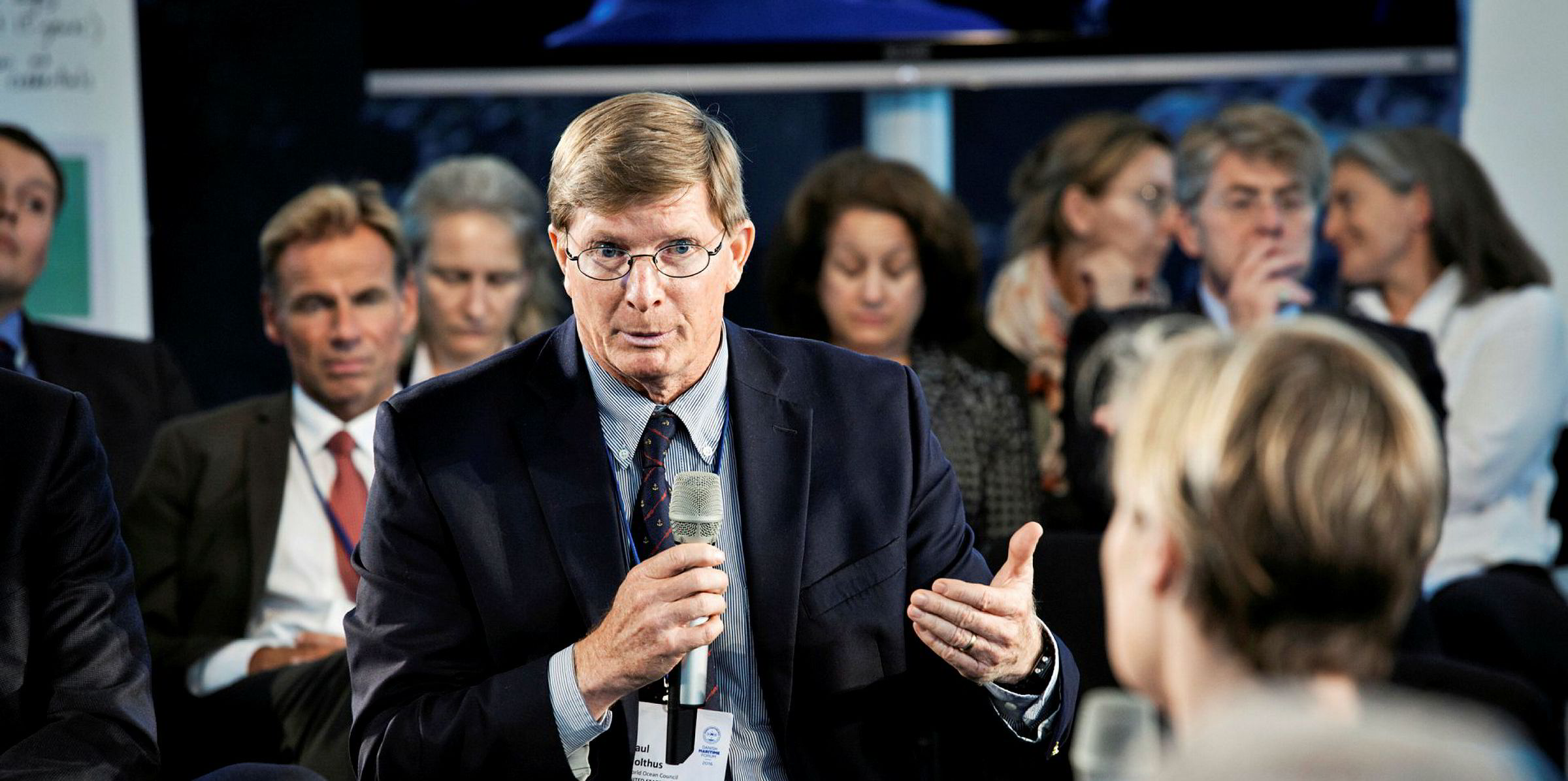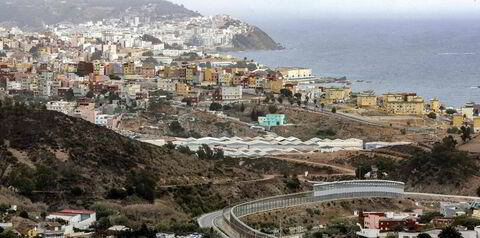Speed restrictions may have been shunted to the slow lane at the IMO, but one of their most vocal proponents believes the proposal may get back on track.
French shipowner Philippe Louis-Dreyfus, who has been a major voice in calling for slow steaming or power reductions to meet the IMO's targets for cutting the industry's greenhouse gas (GHG) output, says he is optimistic.
"What happened was disappointing," the chairman of family-controlled shipowner and operator Louis Dreyfus Armateurs says of the latest IMO session to discuss the carbon emissions targets.
As TradeWinds reported last month, IMO delegates showed little interest in speed limits at a meeting of the Intersessional Working Group on Reduction of GHG Emissions from Ships.
Instead, the talks put the focus on a goal-setting approach that could see shipping pursue carbon targets through a range of operational and technical measures.
Speaking to TradeWinds at the company's headquarters on the banks of the River Seine in the Paris suburbs, Louis-Dreyfus emphasises that mandatory slow steaming was not rejected, but rather "put aside".
Energy to fight
"I'm not totally surprised, and I'm definitely not losing my stamina to have it go forward," Louis-Dreyfus says.
The shipowner says it is bad news that the IMO had put mandatory slow steaming on the back burner. But he claims that it will not change much in the months to come as discussions continue over how to meet the IMO's target of cutting shipping's emissions by 40% by 2030.
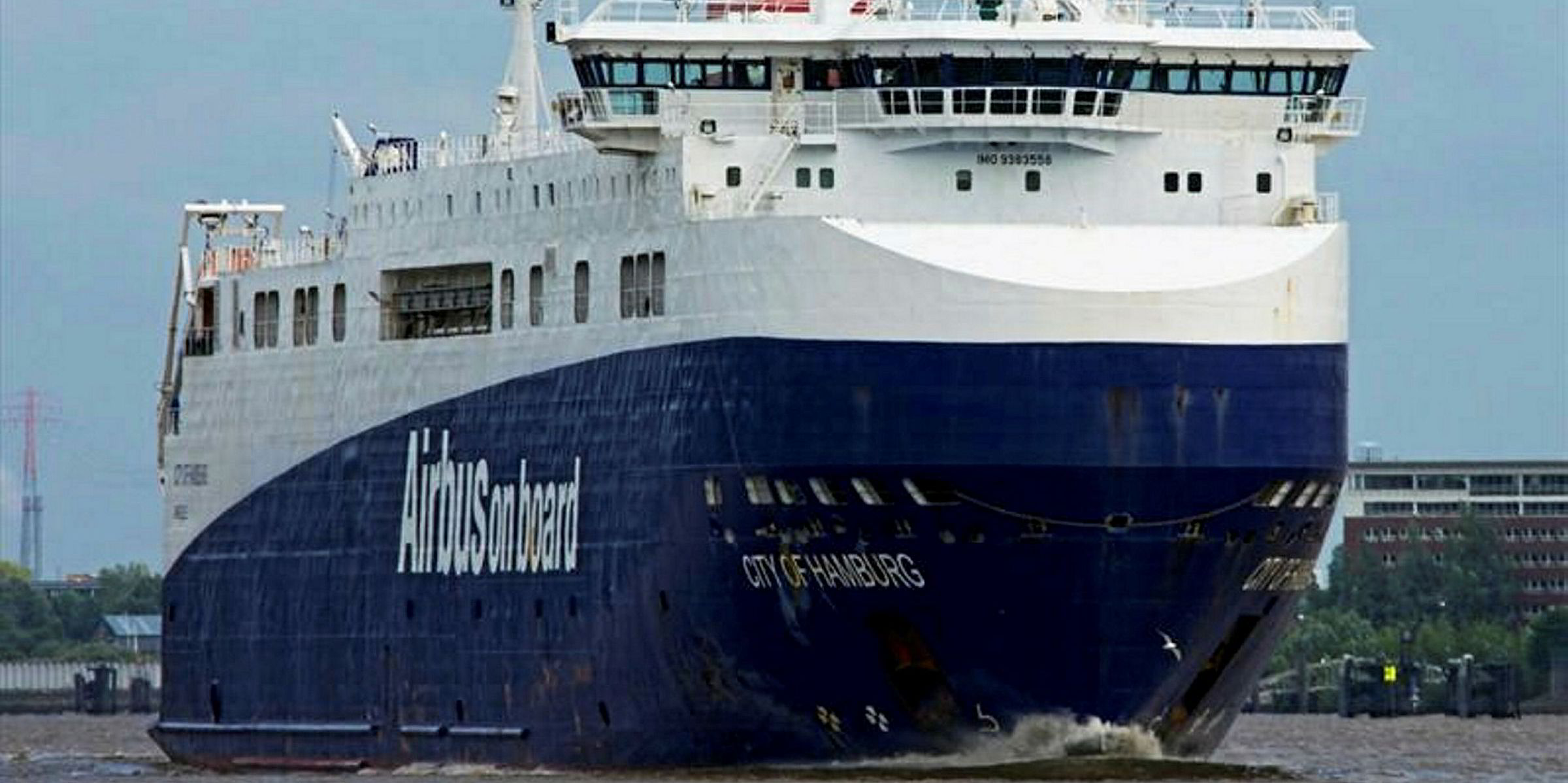
After all, Louis-Dreyfus believes that speed limits are the only way to quickly and efficiently reduce shipping's carbon emissions — and he does not know why everyone cannot see that.
He argues that speed restrictions are the only way to quickly catch up to the goals of the Paris Agreement on climate change, which was agreed at the 2015 United Nations Climate Change Conference. Also known as COP21, the worldwide agreement aims to limit global warming to well below 2C above pre-industrial temperatures.
Understandable measure
Behind his advocacy for speed limits, Louis-Dreyfus says it is his view that environmental issues are truly political concerns rather than strictly technical or maritime ones.
He points to a political environment in Europe where green candidates are gaining ground. For the public, more technical solutions to shipping's GHG emissions are not easily understood.
Speed limits are something the public, and politicians, comprehend.
And even though Louis-Dreyfus describes the reduction of ships' power as virtually synonymous to slow steaming as a solution to the industry's carbon output, he says this engineering term is also not easily understood.
Still, the debate over speed limits represents a rare situation in which shipowners and environmental groups agree.
More than 110 owners have jointly signed a letter with various green groups calling for regulations on speed.
Paying the costs
But shipowners would not be the ones to pay the cost of broad speed restrictions. Slowing down the fleet would have the effect of reducing ship supply, which in turn is expected to boost charter rates significantly.
This means speed limits are opposed by charterers, liner operators and other industry participants. They argue that reducing speed would not have the environmental impact that proponents claim as there would be a need to have more ships on the water to compensate for a slower fleet.
“Whilst much has been made of the possible benefits of slow shipping, we still believe that a one-size-fits-all approach won’t work, and slow shipping is not the answer,” the UK Chamber of Shipping said.
One day charterers will have to take part of the responsibility for environmental issues
Philippe Louis-Dreyfus
“Ships are at the heart of international trade and if they are forced to slow down, we may need more vessels to transport the goods we need. This would increase carbon emissions, which we all want to avoid.”
At his office in the Paris suburb of Suresnes, where the company moved while splitting off from the family-owned trader and charterer Louis Dreyfus Commodities, Louis-Dreyfus echoes his previous acknowledgement that the move by the IMO to shelve speed restrictions is a victory for charterers.
"One day, charterers will have to take part of the responsibility for environmental issues," he says. "They are doing it in some other sectors, but they are not doing it in transport and logistics."
That means charterers will have to pay more if ships slow down, but he insists that it is unlikely to impact their balance sheet.
Existing fleet
Asked about long-term solutions to carbon cuts, Louis-Dreyfus says he is not an engineer, although he sees promise in LNG, cleaner conventional fuels and potentially hydrogen. He adds that he is not against goal-based solutions and that taxes could also be in the mix for the future. But that is the future.
"We have to deal with 50,000 ships existing today," he says. "People are forgetting. The only solution is speed or power."
